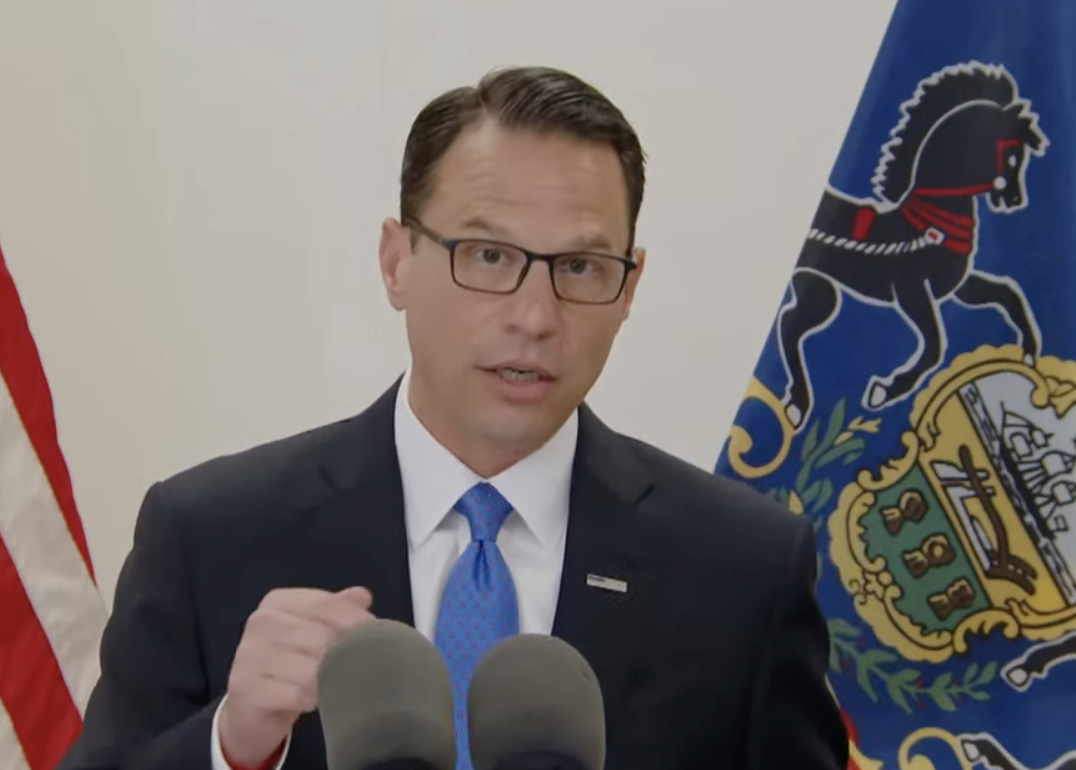PA Senate Dem: School Choice Backers Support White, Christian Nationalist Goals

A Pennsylvania Senate Democrat launched a tirade against school choice supporters at an education rally this week, accusing them of wanting to “drive straight, White, able-bodied kids into private religious schools.”
Sen. Lindsey Williams (D-Allegheny), minority chair of the Senate Education Committee, accused voucher supporters of sharing the goals of the so-called Christian Nationalism movement: having “a country that favors evangelical Christian beliefs over all other beliefs.”
She also claimed public school spending was falling due to choice initiatives.
In fact, per pupil spending in Pennsylvania public schools has risen, even as choice opportunities have expanded. But Williams told a Harrisburg crowd that parental education choice was the enemy of public schools.
Williams told a group of teachers union members and Democratic activists in Harrisburg that while the voucher bills have various names, “they all do the same thing: They all take public money and put it in unaccountable private schools.”
“That’s not a secret. That’s the plan. It’s a plan to dismantle public education.”
School choice advocates dismissed what they called Williams’ outrageous attacks as par for the course.
“It’s pretty common to see these myths trotted out because that’s all they have,” said Marc LeBlond, director of state advocacy with the American Federation for Children. “It is impossible to defend trapping kids in schools that are failing them or making success in life dependent on ZIP code or income.”
Williams called out two groups by name: the Commonwealth Foundation and the Pennsylvania Family Institute.
“They have been defunding public schools by slashing education budgets. They have been in court fighting to prevent constitutionally required funding for our public schools,” Williams said. “All so that they can have a country that favors evangelical Christian beliefs over all other beliefs.”
Commonwealth Foundation Senior Vice President Nathan Benefield told DVJournal Williams has got the facts backward.
“Many private schools across Pennsylvania provide better options for low-income students, minority students, LGBTQ students, and special needs students,” Benenfield said.
Pennsylvania Family Institute Vice President for Policy Tom Shaheen said the institute works with thousands of families “from a variety of backgrounds.”
And the data show education choice benefits the very students Williams says she represents.
For example, a 2021 study published by GLSEN, a nonprofit that seeks to end bullying of LGBTQ+ students, said that public school students experience higher levels of bullying than private school students. Despite public schools having a more inclusive curriculum.
“Students thrive when their families are empowered to find the educational environment that best fits each of their children,” said Shaheen.
As for the claim choice is costing local public schools, per-pupil spending hit a record $22,000 this year, according to Benefield. He added districts squirreled away another $6.8 billion in taxpayer money in reserves.
While Democratic Gov. Josh Shapiro proposed $1.1 billion in new school funding in his budget, the Democratic-controlled House wants far more. On Monday, it passed a public school reform plan that would cost an additional $6 billion.
Supporters said the bill fixed funding disparity problems that a state judge called unconstitutional last year. State Rep. Mary Isaacson (D-Philadelphia) vowed HB 2370 would “reshape and transform the future” for all students and school districts in the state.
“We are sitting on a budget surplus of $15 billion.” said state Sen. Vincent Hughes (D-Philadelphia). “We have the money! Now give it to the children! Put it in the schools!”
Shapiro called the bill a “once in a lifetime opportunity” to help kids and give them the chance to “chart their own course.”
The governor had previously supported school vouchers, including a choice program on his “unfinished business” list last November.
Republicans rejected the premise that surplus taxes collected by the state belong to politicians, arguing the money should go back to taxpayers.
The extra money isn’t enough for the Pennsylvania State Education Association, however. Union president Aaron Chapin said the funding was a “tremendous first step” to help student learning, but still just a step. He also pushed for increasing teacher and staff wages.
“We can’t offer students equitable education opportunities if we don’t have the staff available to provide instruction on programs,” he said.
School choice advocates said throwing money at a problem won’t work. They pointed to last year’s Pennsylvania System of School Assessment results showing just 53.7 percent of students were proficient or above in English. That was a drop from the 61.4 percent proficiency in 2018. Math scores were 39.4 percent proficiency or above in 2023 compared to 42 percent in 2018 — all falling as school funding increased.
“It is disappointing but not surprising that the defenders of the status quo can only fall back on thoroughly debunked claims of ‘defunding’ and endless calls for more money,” said LeBlond.
He says school voucher opponents are too laser-focused on funding.
“As Commonwealth Court Judge Renée Cohn Jubelirer noted in Pennsylvania’s School Funding ruling, ‘options for reform are virtually limitless,’ and reform is not required to be entirely financial.”
Please follow DVJournal on social media: Twitter@DVJournal or Facebook.com/DelawareValleyJournal









